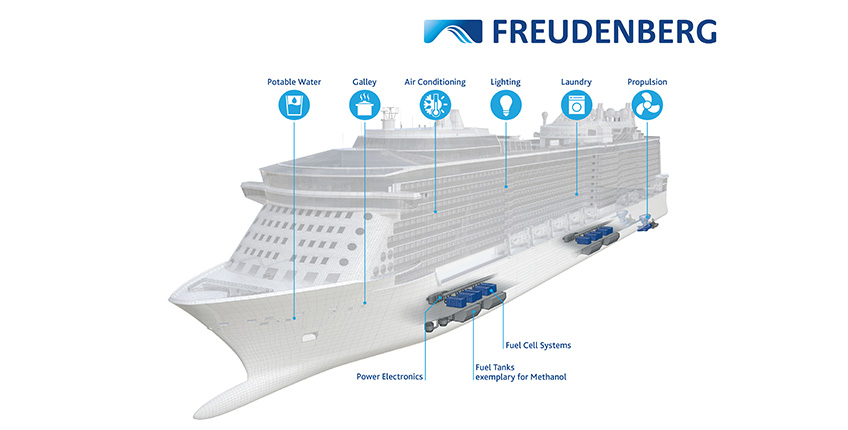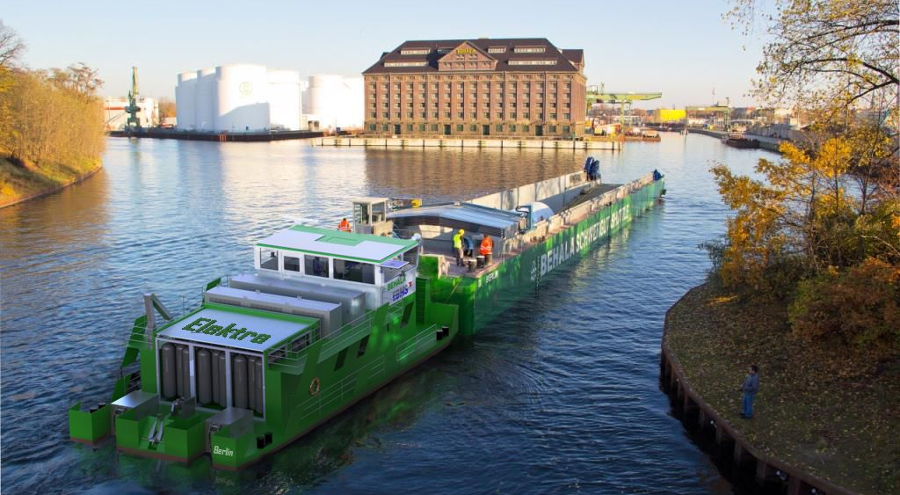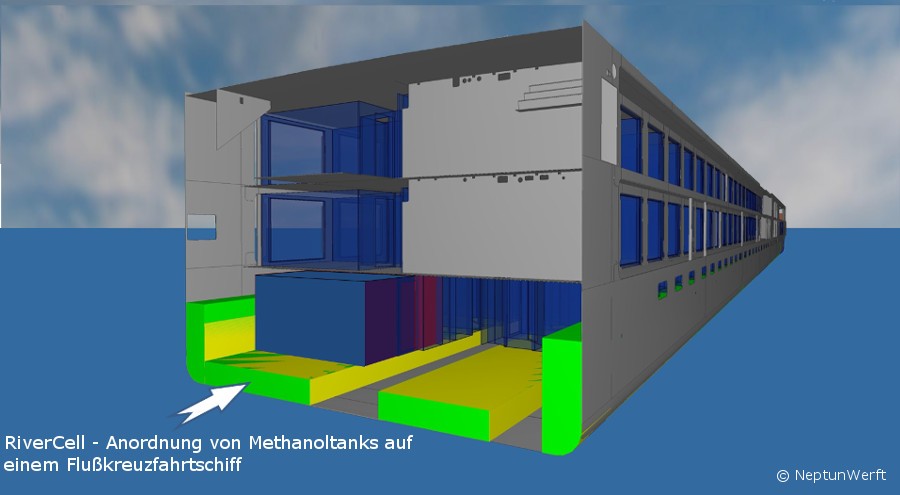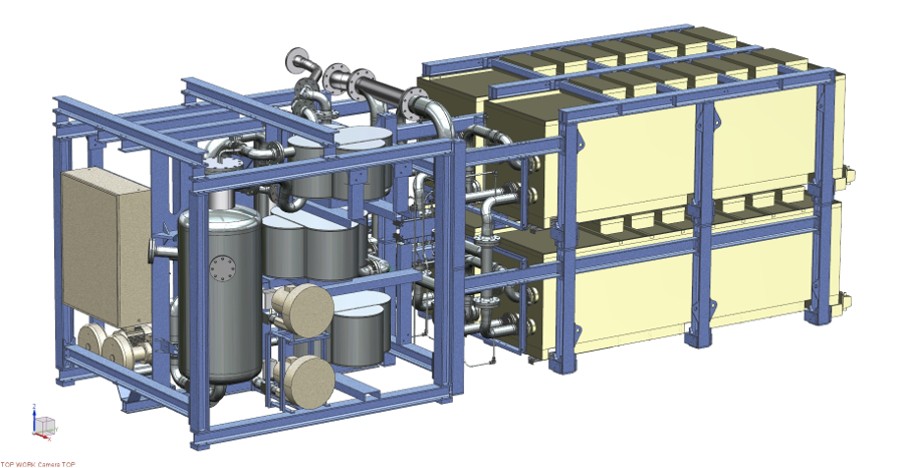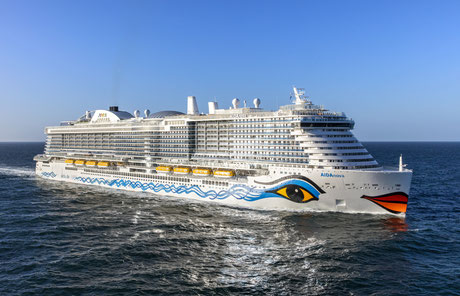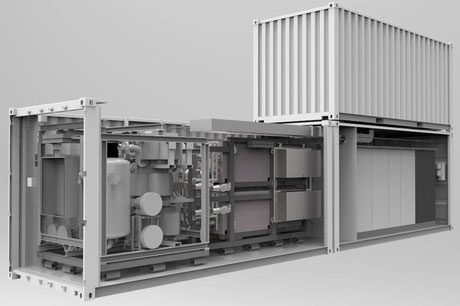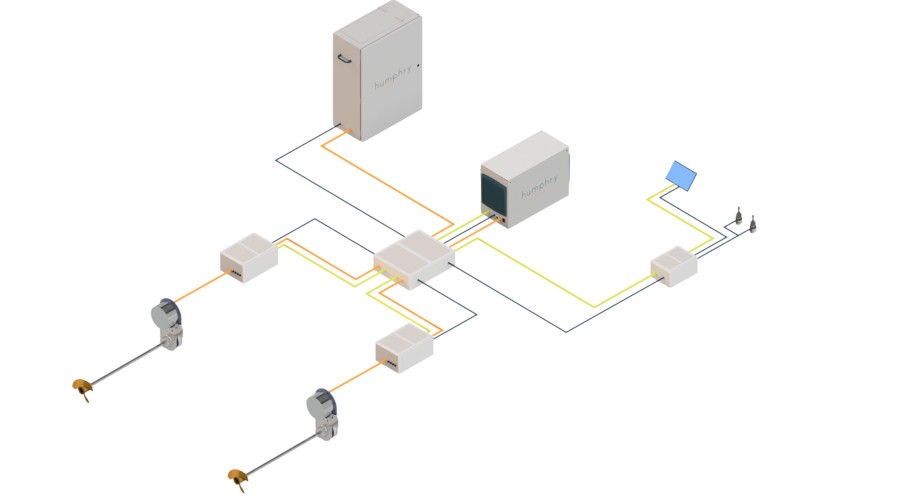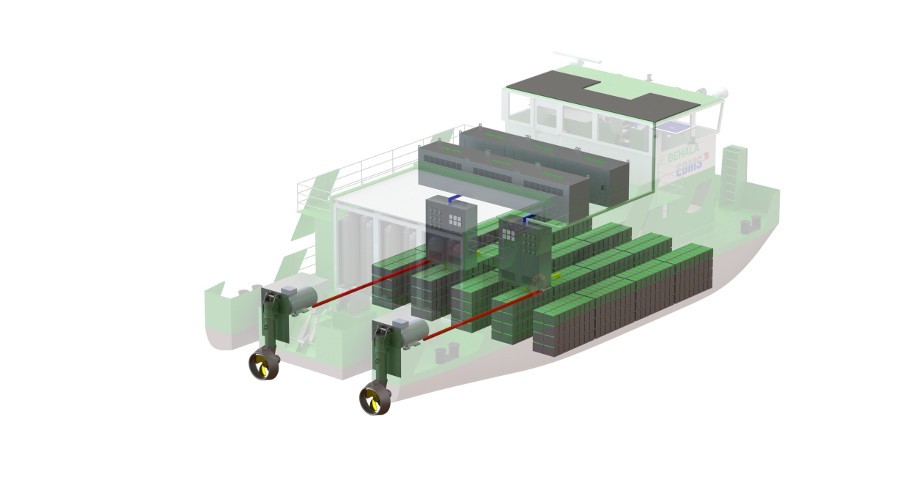In the course of further tightening of emission regulations for ships and due to increasing environmental awareness among shipping companies and passengers, both inland and maritime shipping is facing major challenges. Ships have a large energy demand for propulsion and on-board power supply. Fuel cells offer great potential for meeting this demand in a more emission-friendly way, but hydrogen also offers a wide range of applications in the port environment and the infrastructure required for shipping.
Fuel cell systems in marine applications can make a valuable contribution to environmental and climate protection, both in supplying large ships with electricity, heat and, if necessary, refrigeration for hotel requirements, and, even today, in meeting the complete power requirements of smaller ships. In addition, this technology contributes to the future viability of the German shipping industry. Corresponding systems are today already being intensively developed by shipyards, shipping companies, fuel cell manufacturers, suppliers, and classification societies. Future-capable ships are, above all, clean ships.
Cross-reference cluster activities:
The e4ships lighthouse project, which is managed by NOW, aims to prepare and test the use of fuel cells for energy supply on board of large ships so that emissions such as sulfur dioxide, nitrogen oxide, carbon dioxide, carbon monoxide, and soot particles can be reduced in the future, thus contributing to climate and environmental protection.
Ports act as an interface between seagoing and inland waterway transportation and between upstream or downstream processing or distribution processes. They encompass a variety of infra- and suprastructures, organizations, and stakeholders, each with different expectations and requirements. Energy is consumed, imported, provided, and redistributed there.
The energy transition poses special challenges for ports as multimodal “energy hubs”. Hydrogen and fuel cell applications can provide solutions to defossilize fuel production, storage and import, traffic movements, goods handling processes, and processing steps. In addition, a fuel cell-based smart grid can significantly increase the energy efficiency of the entire port district.
Cross-reference cluster activities:
The e4ports network, managed by NOW, addresses the issue of energy transition in ports. Port organizations, terminal operators, logistics companies, shipping companies, energy producers and suppliers, grid operators, and authorities exchange their knowledge and experience during events and in working groups as part of e4ports and work together across locations to solve specific challenges.


